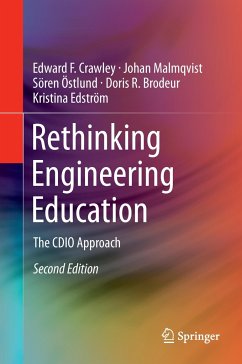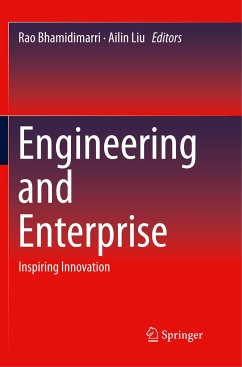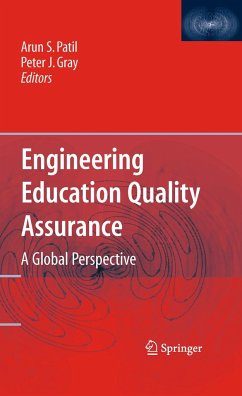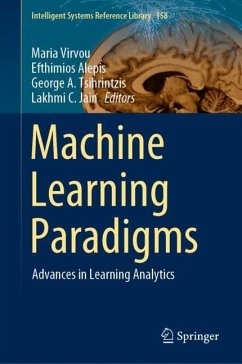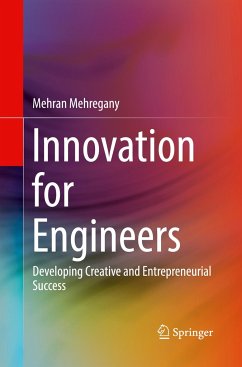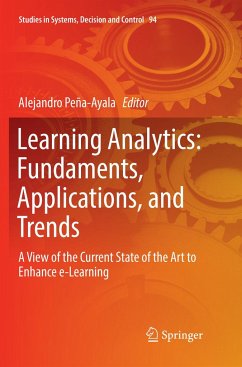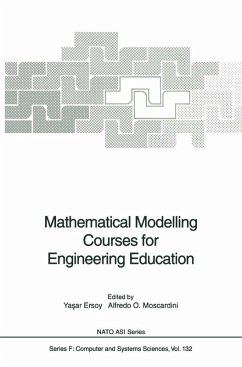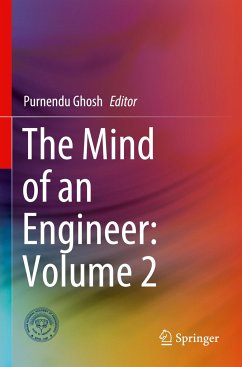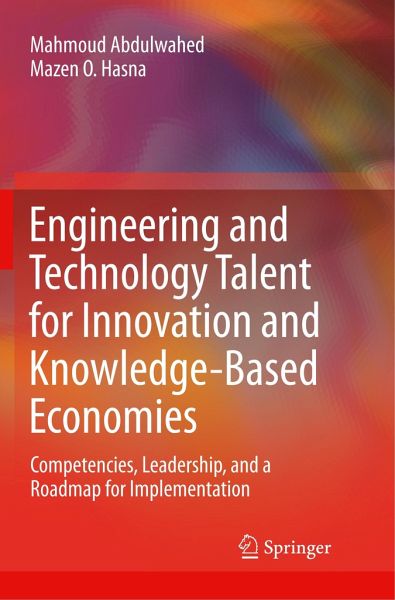
Engineering and Technology Talent for Innovation and Knowledge-Based Economies
Competencies, Leadership, and a Roadmap for Implementation
Versandkostenfrei!
Versandfertig in 6-10 Tagen
76,99 €
inkl. MwSt.
Weitere Ausgaben:

PAYBACK Punkte
38 °P sammeln!
This book introduces and analyzes the models for engineering leadership and competency skills, as well as frameworks for industry-academia collaboration and is appropriate for students, researchers, and professionals interested in continuous professional development. The authors look at the organizational structures of engineering education in knowledge-based economies and examine the role of innovation and how it is encouraged in schools. It also provides a methodological framework and toolkit for investigating the needs of engineering and technology skills in national contexts. A detailed em...
This book introduces and analyzes the models for engineering leadership and competency skills, as well as frameworks for industry-academia collaboration and is appropriate for students, researchers, and professionals interested in continuous professional development. The authors look at the organizational structures of engineering education in knowledge-based economies and examine the role of innovation and how it is encouraged in schools. It also provides a methodological framework and toolkit for investigating the needs of engineering and technology skills in national contexts. A detailed empirical case study is included that examines the leadership competencies that are needed in knowledge-based economies and how one university encourages these in their program. The book concludes with conceptual modeling and proposals of specific organizational structures for implementation in engineering schools, in order to enable the development of necessary skills for future engineering graduates.




